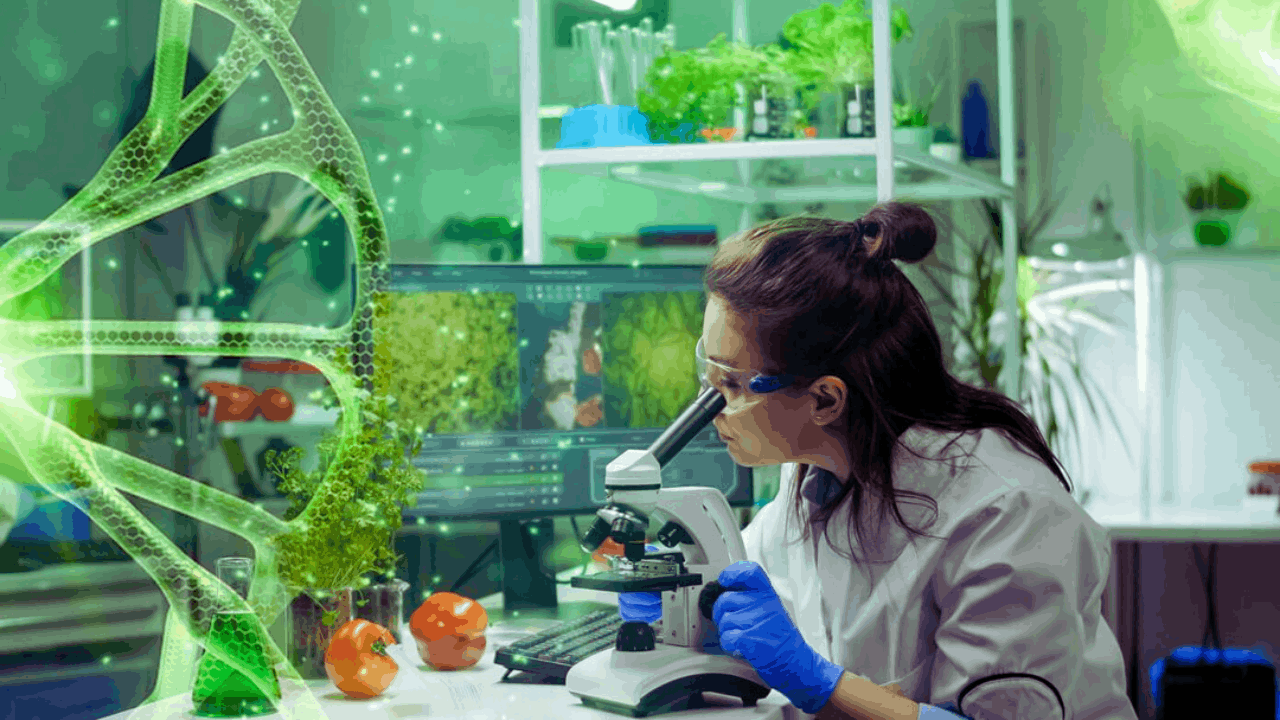A career in the biotechnology industry requires a lot of formal education. You aren't immediately a successful biotechnologist once you graduate from college. You will need to take several more steps if you want the biotechnology industry growth that you're seeking.
Biotechnology is all about solving different kinds of problems, exploring different perspectives, and asking the right questions. If you want to be successful within the biotechnology industry, you must possess several skills.
Check out the guide below to learn more about how you can achieve the biotechnology industry growth that you want.

What is Biotechnology?
Biotechnology is the use of organic or biological processes to create a product that overall increases the quality of life for humans.

Most of the time, these are products that are created from natural resources and often help improve people's lives.
A good example of biotechnology is the use of medicine, vaccines, stem cells, and many more.
Biotechnology is often used in agriculture, marine research, and even in different industries all over the world. It is commonly used in agriculture to improve crops, lower risks, and many other benefits.
Where Do You Start?
If you're interested in learning about biotechnology, it all starts before you enter college. Your high school will have different courses that you can sign up for.
These courses will help you decide which course you're going to take when you enroll in college. If you see your high school offering a biotechnology course, sign up and understand the basics.
You can then enroll in a college course, and a master's degree will further increase your chances of getting hired within the biotechnology industry.
What are Some Popular Jobs Within the Biotechnology Industry
The biotechnology industry has some of the most colorful employment opportunities.

You might even be surprised to know that most of your favorite products are being produced thanks to biotechnologists.
Check out some of the popular jobs within the biotechnology industry.
Biochemists
Most biochemists study biotechnology to apply what they learn in researching and developing new ways to enhance food for people with deficiencies.
They often develop solutions for medical and nutritional problems like vitamin deficiencies.
You can also find a lot of biochemists that have biotechnology backgrounds working in pharmaceutical companies.
Food Scientists
Food scientists also work together with biochemists to produce nutrition-rich food for those who suffer from vitamin deficiencies.
They also help develop ways to prevent food from expiring quickly, as well as provide solutions for food processing and safety.
Epidemiologists
Epidemiologists study biotechnology and apply it to their work to study and research more about certain diseases to stop them from spreading.
They also research how these diseases work so they can develop vaccines to prevent such diseases from infecting more people.
A Career Guide for Biotechnology Industry Growth
A career in biotechnology can be easily achieved once you graduate from college.

While you may immediately get the job that you want, growth and success can be rather challenging.
Here are some ways to achieve the success you want from your career within the biotechnology industry.
There's More to Biotechnology Than the Lab
You may think that once you get the job you want, you will spend the rest of your career working inside a laboratory.
There are still a lot of opportunities out there with biotechnology. The industry is more than just working within the laboratory. Some jobs are related outside the confines of the lab.
You can have fieldwork, or you can also have desk jobs in sales, marketing, and even tech support. Open yourself up to these opportunities and explore them.
Networking is Key to Growth
One of the best ways to achieve success and growth within any industry is to have a proper network.
Not only do you surround yourself with the best in the industry, but you also gain access to opportunities that might not be available for others.
Join groups and conferences and start talking to influential people. Visit trade shows and engage with people in meetings. You can start by asking what their job is and how it affects their career growth and learn from them.
Your First Job is Key to Your Success
After graduation, you will either want to proceed to a master's degree, or you want to take on your first job.
Your first job is the key to your success in the biotechnology industry. You will learn a lot of new skills on your first job. You also expose yourself to the different areas of expertise which you further develop.
Take your first job as an opportunity to learn and discover different interests. Once you find your passion, you can then make the big leap and take on that job.
Always Stay Updated
The biotechnology industry is rapidly growing, and it will always evolve as discoveries are being made.
It is important that you stay in touch with sources that provide you with this updated information. Subscribe to trusted industry publications and enroll yourself in courses to stay current and relevant to new information.
This can help you make a sound decision on what steps you need to take to improve your work. Learning does not stop in college, especially within the biotech industry.
Take Chances and Try Something New
A lot of biotechnologists often settle for the most convenient and comfortable job that they can find. If you're looking for stability, you can always go that route.
Those who want to be successful and grow as a biotechnologist will have to learn to take some chances and risk to try something new.
Risks will always lead to growth, and while the path might not be the most comfortable, resilience is key. Make sure that you also learn how to bounce back from failures should you encounter one.
Conclusion
Biotechnology is a complex industry that has a very noble objective. Innovation, risk management, staying up to date, networking, and gaining knowledge are essential for the biotechnology industry's growth. Having these qualities will ensure that you have a long career in biotechnology.



